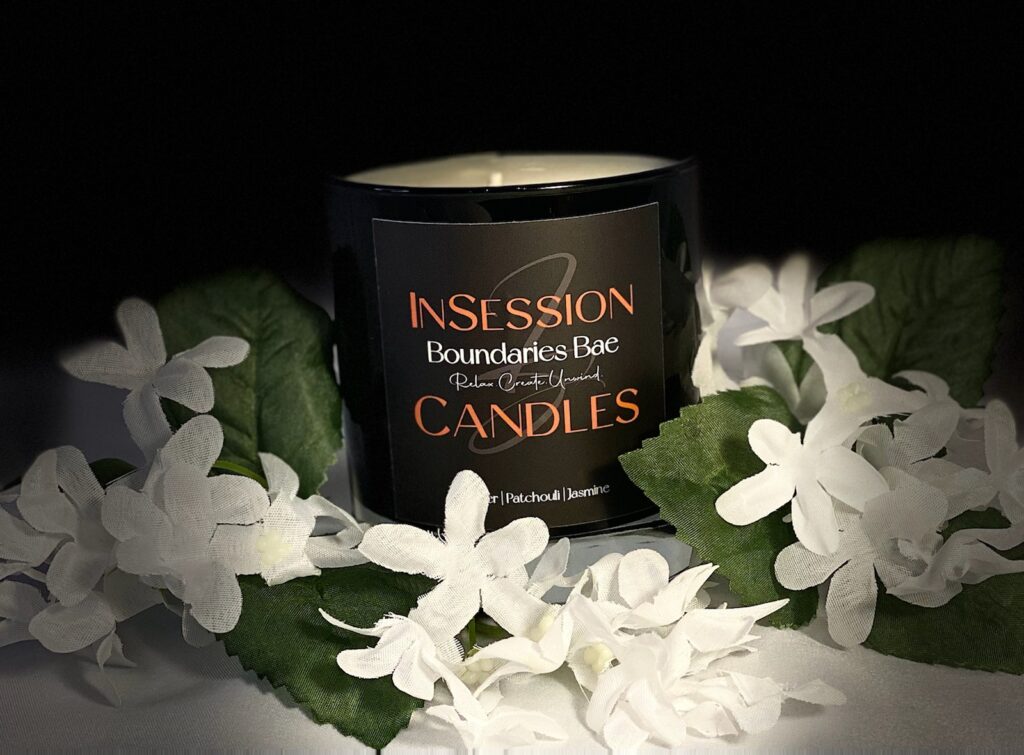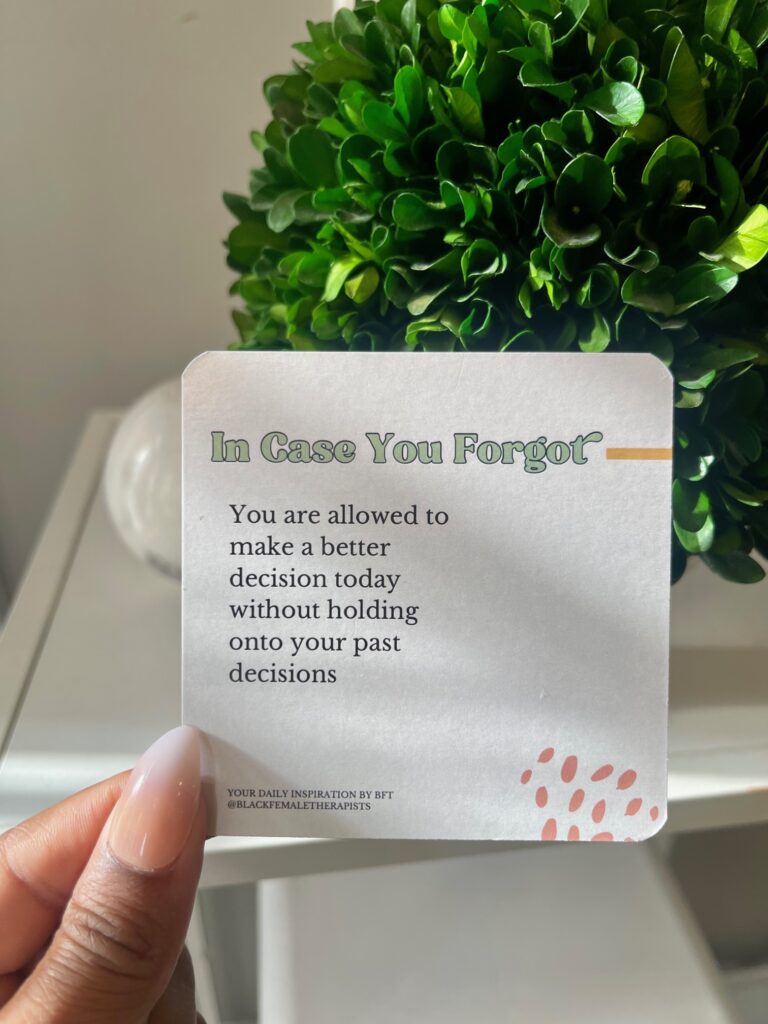
As the holidays approach, many of us find ourselves on the lookout for thoughtful gifts to uplift our loved ones' spirits and promote their well-being. A mental health and wellness gift can make a meaningful difference, helping those we care about feel supported, balanced, and cared for long after the festive season is over. Here’s a curated list of holiday gift ideas for mental health and wellness to brighten anyone’s holiday season!
1. Expression Gear

Hats for Humanity
- Stylish, wearable statements that feature empowering messages, symbols, or designs, allowing individuals to convey their mood, values, or personality. These hats serve as a fun, bold form of self-expression, helping wearers feel more authentic and connected to themselves, while sparking conversations and connection with others. Perfect for adding a unique, personal touch to any outfit, expressive hats empower people to make a statement without saying a word.
- Why it’s perfect: Showcase your personality, feelings, or affirmations, which can boost self-confidence, promote authenticity, and encourage connection with others based on shared values or moods
2. Scents to Wear

- Lose yourself in revelry with CARNIVALE, a deliciously juicy fruity floral fragrance capturing the essence of Trinidad’s legendary celebration. This scent opens with mouthwatering top notes of ripe mango mingling with sweet vanilla and nectar, balanced by traces of luscious cream and sandalwood.
- Why it’s perfect: Wearable scents can boost mental health by offering calming or uplifting aromas that reduce stress, improve mood, and create a comforting, personal ritual throughout the day
3. Mental Health Journals

"Anxiety and Me" and "Unapologetically Slaying Trauma"
- "Anxiety & Me" is designed just for you! It's a thought processing journal for anxiety that includes 22 guided prompts designed to help you process unwanted negative thoughts and affirmations to provide positive emotional support.
- "Unapologetically Slaying Trauma" isn't just a pretty 40 day guided journal with prompts! It's your personal battlefield, where you'll slay the dragons of trauma with the fierceness and grace that define you!
- Why it’s perfect: Journaling can be therapeutic, and these journals offer a constructive, non-intimidating way to approach mental health on a daily basis.
4. Aromatherapy Candles

InSession Candles
- InSession Candles celebrates the invisible yet transformative work our customers undertake every day. Through each candle, we honor your journey in setting boundaries, nurturing self-care, embracing self-love, and building self-awareness. We’re here to support and recognize your dedication to becoming the best version of yourself, creating an atmosphere that reflects your growth and resilience.
- Candle List: Boundaries Bae, The Love Session, Self Care Sunday, Self of The Therapist, The Creative Mind, The Intervention, Manly Monday, The Fall Session, Healing Vibes
- Why it’s perfect: Scent is closely tied to mood, and aromatherapy is a natural way to create a calming environment or enhance focus, making it a great gift for someone juggling multiple responsibilities.
5. Skincare

Isle Glow Face Moisturizer with SPF 45
- Experience the ultimate fusion of sun care and skincare with our all-in-one daily Isle Glow facial moisturizer with SPF 45. Our lightweight, pearlescent facial sunscreen moisturizer provides robust UV & blue light protection while nourishing your skin, making it perfect for adults on the go.
- Why it’s perfect: Skincare products support mental health by encouraging self-care routines that promote relaxation, enhance self-esteem, and provide a calming, mindful moment in daily life.
6. Therapy Light Boxes

HappyLight Lucent
- During winter, some people experience Seasonal Affective Disorder (SAD) due to reduced sunlight. Therapy light boxes provide bright light exposure that can mimic sunlight, helping to regulate mood and sleep cycles. They can be especially helpful for people working indoors or in areas with limited natural light.
- Why it’s perfect: Light boxes are an effective tool to combat the winter blues, making it a thoughtful gift for someone who may feel down during the darker months.
7. Personal Self-Care

The Perfect Fit
- Treat yourself or someone special to Shush Lingerie’s Perfect Fit Bra Fitting Experience – a gift that combines luxury, comfort, and self-care. Designed for all body types, this personalized fitting session provides expert guidance to find a bra that enhances shape, support, and confidence. Whether it’s for everyday wear or special occasions, The Perfect Fit ensures a flawless foundation under any outfit, making every woman feel celebrated and empowered.
- ✨ Use code: HOLIDAYFIT20 for 20% off your Perfect Fit experience! ✨
- Because every woman deserves to feel supported, confident, and celebrated. This holiday, give the gift of Shush Lingerie and make her feel special from the inside out!
- Why it’s perfect: A well-fitted bra can boost confidence and comfort, reducing physical discomfort and enhancing self-esteem, which positively impacts mental well-being.
8. Books on Mental Health and Wellness

- Books are a wonderful way to explore mental health topics and gain new perspectives. Consider gifting books like The Power of Now by Eckhart Tolle, Atomic Habits by James Clear, or Burnout: The Secret to Unlocking the Stress Cycle by Emily and Amelia Nagoski.
- Why it’s perfect: Books on mental health and wellness can be powerful tools for personal growth, offering insight and practical strategies for managing stress, developing resilience, and finding purpose.
9. Affirmation Cards

- Daily affirmation cards offer uplifting, positive messages to inspire confidence, self-love, and a mindful start to each dayA the start of each week, pull a new Inspirational card and put it on display in a spot you will see often.
- Why it’s perfect: Affirmation cards make a meaningful gift for mental health by providing daily reminders of positivity and self-worth, helping to reframe thoughts and boost emotional resilience.
10. Lotions and Creams

Barrier Repair Cloud Body Cream
- This cream is made with exclusive Triple Barrier Repair Complex to strengthen the skin's barrier, rapidly increase hydration and help it retain moisture. It's enriched with Resurrection Plant, a miracle plant from southern Africa renowned for its ability to survive extreme dry weather by playing dead then blooming back to life during rainfall. This unique plant extract instantly improves dry, dull, damaged skin and makes Cloud Body Cream a must-have for a restored, hydrated skin barrier.
- Why it’s perfect: Lotion can be an excellent gift for mental health because it promotes self-care, encourages moments of mindfulness, and helps create a calming routine.
11. Card Decks

Simply Lovable® Card Deck
- Elevate your self-love journey with the Simply Lovable® Card Deck—your ultimate tool for healing, growth, and empowerment. Designed with the proprietary SELF method in mind—Self-Awareness, Evolution, Letting Go of limiting beliefs, and Fulfillment through self-care—this beautifully crafted deck features 4 transformative sections: Self-Discovery Activity Cards. Self-Love Prompt Cards. Self-Care Activity Cards. Affirmation Cards.
- Why Is It Perfect: Perfect for women at any stage of their self-love journey, the Simply Lovable® Card Deck is more than just a product—it’s a reminder that the most important relationship you’ll ever have is the one with yourself. Whether you're seeking inspiration, healing, or a daily boost of encouragement, these cards are here to guide you every step of the way.
This holiday season, consider gifts that support mental health and encourage wellness practices. Each item on this list provides an opportunity for self-care, introspection, or a boost in mood. Giving a wellness-focused gift not only shows your love but also fosters resilience and positivity, which is truly a gift worth giving.

Read Time: 3 Minutes
When it comes to relationships—whether romantic, familial, or friendships—there’s often a question that arises: Can you change someone? Many of us have been there. You meet someone, and you see potential in them. Maybe they have habits or behaviors you don’t quite align with, and you start wondering if you can help them change. But is it realistic to believe you can change someone?
Let’s dive into this topic from a mental health perspective.
The Illusion of Control
One of the most common misconceptions in relationships is the belief that you can control or change another person. While it may be tempting to try to mold someone into the version of themselves you think they should be, the reality is that true, lasting change can only come from within.
People grow and evolve, but forcing that evolution is often a recipe for frustration. At its core, the desire to change someone else stems from a place of control, not love. True love is about acceptance, which doesn’t mean turning a blind eye to harmful behaviors, but rather supporting someone's growth without demanding change to fit your ideals.
Change Starts from Within
Here’s the truth: people can change, but they will only do so if they genuinely want to. This applies to all kinds of change—whether it's improving mental health, breaking bad habits, or developing emotional intelligence. The key factor is intrinsic motivation, not external pressure.
For instance, if a partner has a pattern of unhealthy behaviors—such as emotional unavailability or a tendency to avoid conflict—they may not be ready to confront and change those behaviors unless they acknowledge the issue themselves. Change requires self-awareness, a desire for growth, and a commitment to the process.
Supporting Someone’s Journey Without Pushing
While you can’t force someone to change, you can support their growth in meaningful ways. Here’s how:
- Model Healthy Behaviors: Often, the best way to inspire change is to lead by example. If you prioritize self-care, emotional vulnerability, and setting boundaries, the people around you may begin to follow suit.
- Create a Safe Space: Encourage open, non-judgmental communication. This allows people to reflect on their behaviors without feeling attacked or misunderstood.
- Encourage Personal Development: Suggest helpful resources like therapy, books, or workshops. However, it’s important to remember that your encouragement should be gentle, not forceful.
- Accept Their Pace: Even if someone is ready to change, it’s not going to happen overnight. Be patient and understand that growth is a gradual process.
When Change Isn’t Happening
What happens if someone isn’t willing or able to change? It’s important to assess how this impacts your mental health and well-being. If their behavior is negatively affecting you, it may be time to evaluate the relationship. Here are a few key things to consider:
- Boundaries: Setting boundaries is crucial when someone’s actions hurt you. Make it clear what you can and cannot tolerate. Check-in with yourself to ensure you are honoring your feelings.
- Self-Preservation: It’s okay to walk away from relationships that are toxic or emotionally draining. Sometimes, protecting your own mental health is more important than waiting for someone else to change.
- Acceptance: Accepting that you cannot change someone can be freeing. It releases you from the burden of trying to fix what is not yours to fix.
What You CAN Do Is Focus on Your Own Growth
The only person you have the power to change is yourself. Focusing on your own personal development, emotional intelligence, and self-care is the best thing you can do for any relationship. Sometimes, when you shift your focus inward, the people around you begin to change as well—not because you forced them to, but because they were inspired by your own growth.
So, can you change someone? The answer lies in whether they are willing to change. Rather than pouring your energy into fixing others, invest it into fostering healthy, supportive relationships where growth is a mutual, self-directed journey.

Read Time: 5 Mins
Let’s be real: life is messy, unpredictable, and rarely goes according to plan. We all know those people who seem to have it all together—the ones with perfectly organized planners, spotless homes, and a five-year plan they’re steadily ticking off. But for the rest of us, the "hot messes" of the world, success can feel like a distant dream. Here’s some good news: you don’t need to have everything figured out to be successful. In fact, embracing your inner chaos can be the secret sauce to achieving your goals. Here’s how.
1. Accept Your Messiness – It's Part of the Journey
First things first: accept that being a “hot mess” isn’t a flaw; it’s just reality. Life is filled with unexpected detours, emotional rollercoasters, and days when you can't seem to find your keys (or your motivation). Instead of fighting against your chaos, recognize that it’s part of being human. The messiness doesn’t have to be an obstacle—it can be the raw material from which you build something amazing.
Think about it: some of the most successful people in the world didn’t get there by following a straight path. They stumbled, fumbled, and sometimes crashed spectacularly. But they didn’t let that stop them. Instead, they learned to navigate their own messes with grace and humor, turning their perceived flaws into strengths.
2. Focus on Small, Consistent Actions
When you’re feeling overwhelmed by the chaos, the idea of setting big, audacious goals can feel paralyzing. So, forget the grand plans for a moment. Instead, focus on small, consistent actions that move you forward. These actions don’t have to be perfect; they just need to happen. Whether it’s dedicating 10 minutes a day to journaling, taking a short walk, or sending one networking email, small steps build momentum over time.
The key is consistency, not perfection. Show up for yourself, even when you don’t feel like it. Over time, these small actions accumulate, creating a foundation for success, regardless of how chaotic your life may seem.
3. Embrace Your Unique Process
Let’s get one thing straight: there’s no single blueprint for success. What works for one person may not work for another. If you’re a night owl who does your best thinking at 2 AM, embrace it. If you thrive in bursts of creativity followed by periods of rest, own that rhythm. Your process doesn’t have to look like anyone else’s to be effective.
Success isn’t about fitting into a mold; it’s about finding what works for you and leaning into it. Your unique way of navigating life’s messiness can be your greatest asset. The more you understand your own patterns, triggers, and rhythms, the better you can harness them to achieve your goals.
4. Learn from Your Mistakes (Without Beating Yourself Up)
Mistakes and failures are inevitable. They’re not a sign that you’re not capable; they’re proof that you’re trying. Instead of viewing mistakes as setbacks, see them as learning opportunities. What went wrong? What could you do differently next time?
Be kind to yourself in this process. Self-compassion isn’t just nice to have; it’s essential for long-term success. When you treat yourself with kindness, you’re more likely to bounce back quickly and continue moving forward.
- Related: How to Deal with Negative Thinking - Click Image to Play
5. Find Your Tribe of Fellow Hot Messes
No one achieves success in a vacuum. We all need a tribe—a group of like-minded individuals who understand our struggles and cheer us on. Surround yourself with people who get it, who are also navigating their own messiness with courage and humor. These are the people who will lift you up when you’re feeling down and remind you of your strengths when you’re doubting yourself.
Whether it’s through online communities, local meetups, or friendships, find those who support your journey. And remember, it’s not about finding perfect people; it’s about finding people who are real, compassionate, and willing to support each other.
6. Celebrate the Small Wins
In the pursuit of big goals, we often forget to celebrate the small victories. But these little wins are essential—they’re the fuel that keeps us going. Did you get out of bed today when you really didn’t want to? Did you make it through a tough conversation? Did you check one tiny task off your list? Celebrate it!
Acknowledging these small successes builds confidence and resilience. It reminds you that, despite the chaos, you’re making progress. And every step forward, no matter how small, brings you closer to your larger goals.
7. Practice Radical Self-Care
Finally, taking care of yourself is non-negotiable. When life feels like a mess, self-care often falls to the bottom of the priority list, but it should be at the top. You can’t pour from an empty cup, so make sure you’re filling yours up regularly. This could be through meditation, exercise, a hobby, affirmations, or simply taking time to rest and recharge.
Self-care isn’t just about pampering yourself; it’s about building resilience and mental strength. It’s about knowing your limits and respecting them. When you’re kind to yourself, you’re better equipped to handle the chaos and turn it into something beautiful.
- Related: Do Affirmations Really Work - Click Image to Play

Embrace the Mess and Thrive
Being a hot mess doesn’t disqualify you from success—in fact, it can be a strength if you let it. Embrace the chaos, laugh at your mistakes, and keep moving forward. Success isn’t about having it all together; it’s about making the most of where you are with what you have. So go ahead, be a hot mess, and show the world that you can thrive just as you are.
Remember, you’re not alone in this journey. We’re here to help you navigate your unique path to success—one beautifully messy step at a time.
Have you heard about the latest, latest TikTok trend that’s telling us exactly how we should behave? The definition of “demure” means modest, reserved, and shy and often implies a sense of elegance or refinement in one's demeanor. A demure person typically avoids drawing attention to themselves and may exhibit a gentle or understated demeanor.
In a world that often glorifies loudness and extroversion, embracing a more demure lifestyle can be surprisingly beneficial for mental health. Demureness, characterized by modesty and a reserved demeanor, offers a unique path to emotional well-being, particularly for those who find solace in staying under the radar.
One of the key benefits of adopting a demure approach is the reduction of social stress. For many, navigating bustling social scenes and high-energy interactions can be overwhelming. By opting for a quieter, more understated presence, individuals can avoid the pressures of constant social engagement and instead focus on personal reflection and rejuvenation. This intentional retreat from the spotlight allows for a healthier balance between social interactions and solitude, crucial for managing anxiety and stress.

Moreover, embracing demureness can foster a sense of control and self-preservation. In a society that often pushes people to be assertive and outspoken, maintaining a low profile can serve as a protective shield against unwanted scrutiny and criticism. This buffer helps in preserving mental health by minimizing exposure to potentially stressful situations and preserving one's energy for more meaningful engagements.
Another benefit lies in the ability to cultivate deeper, more genuine relationships. When one is not constantly vying for attention or validation, it becomes easier to form connections based on mutual respect and understanding. This shift from superficial interactions to more authentic bonds can lead to greater emotional support and fulfillment.

In essence, embracing #demureness is not about withdrawing from life but about choosing how and when to engage in a way that aligns with one's personal comfort and mental health needs. By navigating the world with a quieter grace, individuals can create a sanctuary of calm that supports their emotional well-being amidst life's inevitable chaos.


